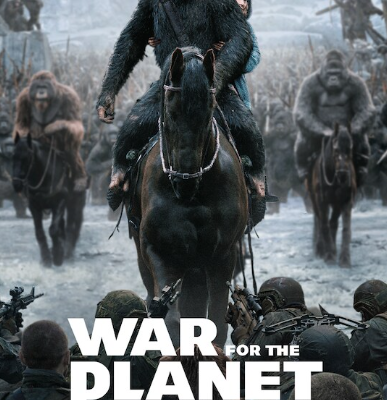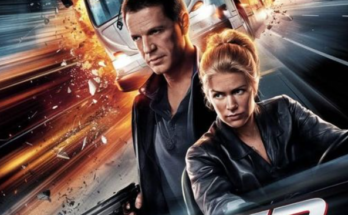In “War for the Planet of the Apes,” the gripping conclusion to the acclaimed trilogy, a fierce conflict rages between humans and the intelligent apes led by Caesar, a formidable leader grappling with the weight of his kind’s future. After a devastating attack by a ruthless military faction, Caesar is forced to confront not only the external threat posed by the humans but also the internal struggles of his own kind as they face the dark side of their evolution. As the war escalates and the stakes grow higher, Caesar embarks on a relentless quest for vengeance against the man responsible for his people’s suffering, a sinister Colonel who views apes as nothing more than vermin. Along the way, Caesar encounters a diverse cast of characters, including a mute girl who possesses a unique connection to the apes, and a group of loyal allies who stand by his side, including the brave and resourceful Maurice and the young, ambitious Rocket. As battles rage and sacrifices mount, Caesar is pushed to the limits of his morality, forcing him to question his own beliefs about justice, leadership, and what it truly means to be a protector of his kind. The film delves deep into themes of sacrifice, loyalty, and the struggle for survival, highlighting the emotional toll of war on both sides. Ultimately, Caesar must choose between revenge and the hope for a peaceful coexistence, setting the stage for a poignant climax that redefines the future of both species. “War for the Planet of the Apes” captivates audiences with its stunning visual effects, powerful performances, and thought-provoking narrative, culminating in a breathtaking showdown that leaves viewers contemplating the price of progress and the enduring fight for empathy in a world torn apart by conflict. As Caesar’s journey unfolds, it serves as a poignant reminder of the fragile nature of peace and the indomitable spirit of those who dare to fight for their place in the world.
In “War for the Planet of the Apes,” the story unfolds in a post-apocalyptic world where intelligent apes, led by Caesar, are locked in a brutal conflict with a ruthless human military faction determined to eradicate them. After a devastating attack by the humans that results in the loss of his fellow apes, Caesar grapples with his grief and the growing desire for vengeance. Torn between his instinct for retribution and his commitment to peace, Caesar embarks on a perilous journey to confront the human leader, known as the Colonel, who has taken an extreme approach to control and eliminate the ape population. As Caesar ventures deeper into enemy territory, he encounters new allies, including a young girl who possesses a unique bond with the apes and a strong, loyal orangutan who aids him in his quest. Together, they navigate the harsh realities of war, uncovering the Colonel’s sinister plans that threaten not just the apes but the future of humanity itself. The film delves into profound themes of loss, sacrifice, and the consequences of violence, pushing Caesar to face the darkest parts of his own nature. With every confrontation, he must weigh the cost of revenge against the possibility of a peaceful coexistence. The tension escalates as the final showdown looms, leading to heart-stopping battles that test the limits of both species. In a visually stunning and emotionally charged climax, Caesar faces the Colonel in a confrontation that forces him to confront not only his enemies but also his own inner demons. Ultimately, “War for the Planet of the Apes” is a poignant tale of survival, the fight for freedom, and the enduring struggle between vengeance and compassion, leaving viewers to ponder the true meaning of humanity in the face of war. As the dust settles, the fate of both apes and humans hangs in the balance, setting the stage for a new chapter in their intertwined destinies.



